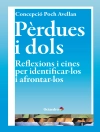Structured Literacy (SL) approaches are increasingly recognized as the gold standard for teaching struggling readers. This highly practical book walks educators through designing SL interventions for students with common types of reading difficulties–word reading, comprehension, or a combination of both. Louise Spear-Swerling offers tools for assessing students’ reading profiles and tailoring SL to their needs. In a convenient large-size format, the volume is packed with case studies, sample lesson plans addressing both early and advanced stages of reading, instructional activities, and application exercises for teachers. A chapter on English language structure presents essential foundations for implementing SL effectively. The companion website features a knowledge survey about language structure (with answer key), as well as downloadable copies of the book’s 14 reproducible forms.
See also Louise Spear-Swerling’s edited volume, Structured Literacy Interventions: Teaching Students with Reading Difficulties, Grades K–6, which surveys SL interventions across all components of literacy.
Table des matières
1. How Structured Literacy Interventions Can Help Students with Varied Reading Problems
2. The Structure of Language
3. Assessment for Planning Structured Literacy Interventions
4. Structured Literacy Interventions for SWRD–Early Stages
5. Structured Literacy Interventions for SWRD–Advanced Stages
6. Structured Literacy Interventions for SRCD–Early Stages
7. Structured Literacy Interventions for SRCD–Advanced Stages
8. Structured Literacy Interventions for MRD–Early Stages
9. Structured Literacy Interventions for MRD–Advanced Stages
Index
A propos de l’auteur
Louise Spear-Swerling, Ph D, is Professor Emerita in the Department of Special Education at Southern Connecticut State University. She helped prepare both general and special educators to teach reading using Structured Literacy approaches for many years, including supervising a public school tutoring program that paired teacher candidates with struggling readers. Her research interests include children’s reading development, reading difficulties, and the knowledge and skills needed to teach reading effectively, especially to struggling and at-risk readers. She has presented and published widely on these topics. Dr. Spear-Swerling is author or editor of several books and is an editorial board member for several journals, including Annals of Dyslexia, Teaching Exceptional Children, and Reading Psychology. She consults often for K–12 school districts, mostly on students with severe or persistent literacy difficulties and ways to improve their achievement.












